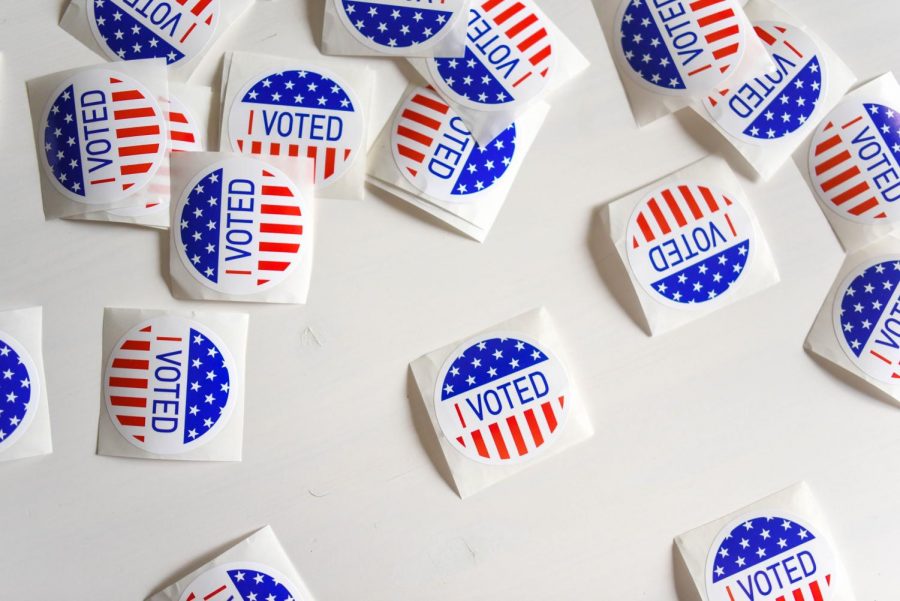On April 23, Pennsylvania will be holding the 2024 primary election that will determine the candidates for what is likely to be a contentious election cycle. But will voters really have much of a choice this year?
Voters will be able to pick who will be the candidate representing their party in various races this Nov. Since this is a primary election, only voters registered as a Democrat or Republican can vote, as Pennsylvania has a closed primary. Other states like New Jersey have an open primary where voters from any party and independents vote in the primary election.
The primary will feature both local and national races, including township/borough representatives, school board members, state representatives, and US house representatives. But what makes this primary different than years past is that most races are uncontested, which means that each party only has one candidate you can choose. Effectively, the 2024 general election has already been set.
Headlining the primary will be the presidential race. For the Democrats, President Joseph R. Biden Jr. is running for reelection. On the ballot, voters will have the option of selecting Rep. Dean Phillips (D-MN), but on March 6, he dropped out of the race. As many news sites put it, Phillip’s run was a long shot against Biden, and his chances diminished even more when it was revealed that one of his advisors was behind calls to New Hampshire voters urging them not to vote for Biden, using an AI generated voice of the former.
Initially, the GOP presidential race seemed competitive with former president Donald J. Trump taking on a host of candidates, including South Carolina Gov. Nicki Haley, Florida Gov. Ron Desantis, Sen. Tim Scott (R-SC), and more. By the first primary of the year, Scott had dropped out, with Desantis dropping out just after the Iowa Caucuses. Eventually, it became clear that Trump is the overwhelming favorite amongst voters, with Haley dropping out after Super Tuesday. She was the only candidate to win a state’s primary other than Trump or Biden, that being Vermont. Like Phillips, her name will still appear on the ballot.
Pennsylvania will be one of multiple states with US senate elections this year. Like the presidential competition, the Senate candidates have already been chosen. Democrats will be represented by Sen. Bob Casey Jr., who is seeking a fourth term for the seat. Republicans will be represented by David McCormick, who was the Deputy National Security Advisor during George W. Bush’s second term. McCormick had previously tried to run for senate in 2022, but Republican voters chose Mehmet Oz, who himself eventually lost. But unlike the presidential race, Casey and McCormick are truly uncontested, and they will be the only candidates to appear on the primary ballot.
In the US Congress, Bucks County and a portion of Montgomery County are part of Pa’s 1st congressional district, which is currently represented by Rep. Brian Fitzpatrick (R-PA) of Levittown. In a rare move, all 17 congressional representatives from Pa. are running for reelection this year. Fitzpatrick, who is seeking a fifth term, will be running on the GOP ballot against Mark Houck, an anti-abortion activist. The only candidate to file for the Democratic primary was Ashley Ehasz, who had run for this seat in the last election.
On the state level, odd numbered districts will be up for reelection this year in the Pennsylvania state senate. But this means that Bucks County, which is represented by the 6th, 10th and 16th districts, will not be voting for the upper chamber this year.
But in the Pa House of Representatives, all seats are up for grabs this year. There are ten districts exclusively in Bucks County with numerous candidates. In all but one district, the primary includes one candidate per party. The exception is the 31st district in the Newtown area, which has only one candidate running in the whole race, incumbent Rep. Perry Warren (D). All incumbent representatives in Bucks County are running for reelection.
For local elections, voters will also choose candidates for a range of positions, including school board members, township and borough managers, mayors and more. There are no ballot measures during this primary.
The deadline to vote in this primary election is April 3. To register, voters must be 18 years or older on or by April 23, be a resident of the state, and cannot be imprisoned for a felony. You must be registered as a Democrat or Republican for the primary, and you must vote on your respective party’s ballot. In Pa, felons have their right to vote restored once they leave prison.
To register to vote, visit vote.pa.gov to fill out an application online. You can also register by mail, at the county elections office, or by visiting your local PennDOT center.


